Pure Earth’s Film wins GRAND PRIX award at WHO’s “Health for All” film festival
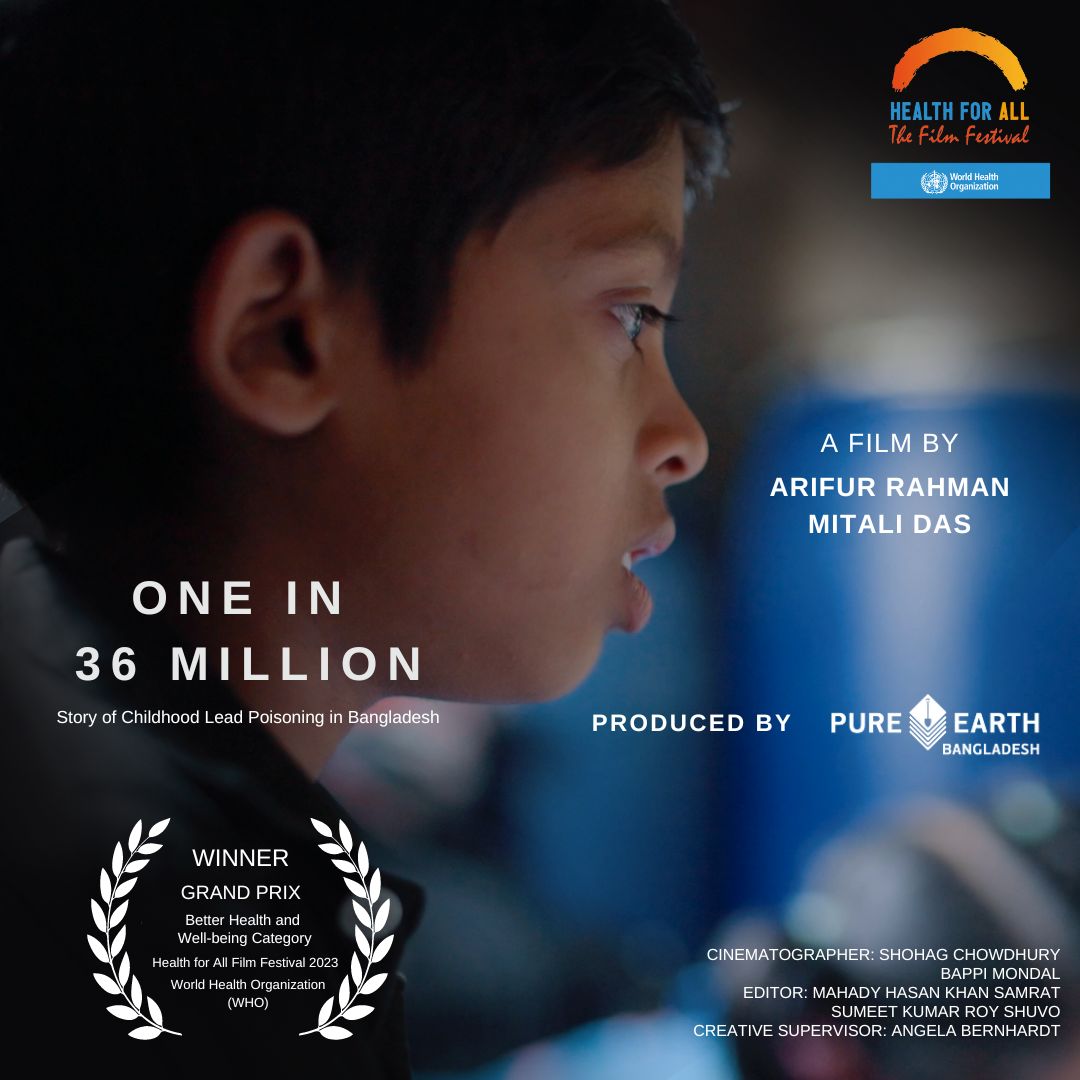
Watch the Award Giving Ceremony: The Health for All Film Festival (HAFF)
Watch the film: One in 36 Million: Story of childhood lead poisoning in Bangladesh
Press Note: Bangladeshi film on childhood lead poisoning won Grand Prix in the WHO film festival
The documentary film “One in 36 Million: Story of Childhood Lead Poisoning in Bangladesh”, produced by Pure Earth Bangladesh has won the Grand Prix in the “Better Health and Well-being” category of the World Health Organization (WHO)’s fourth ‘Health for All’ film festival. The award ceremony was held on 6 June at the WHO’s headquarters in Geneva, Switzerland. The event was attended in person and online by filmmakers, actors, producers, development workers, activists, and public figures. Three “GRAND PRIX” and four special prizes were announced at the online Awards Ceremony followed by a series of discussions with winners and jurors.
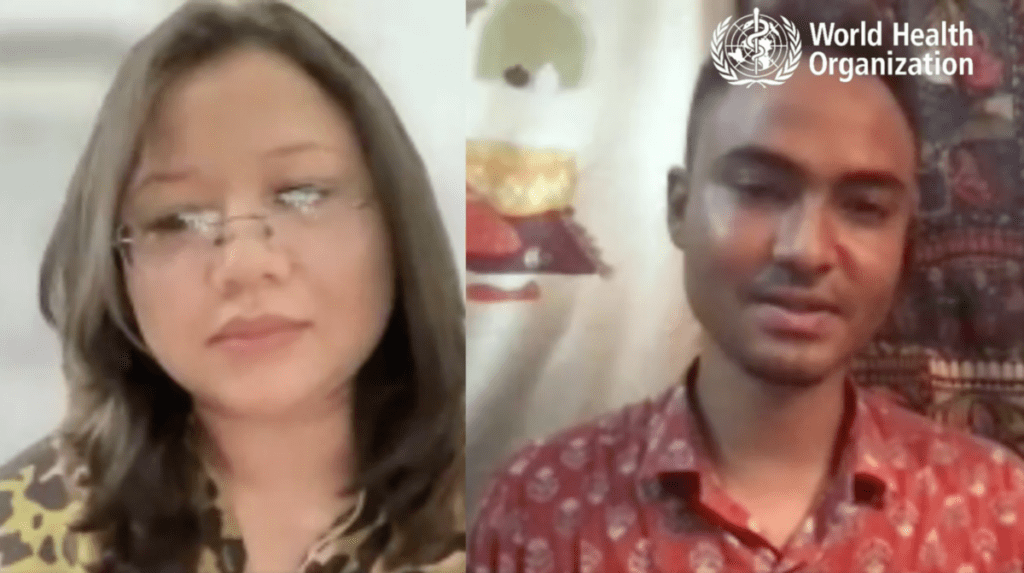
Photo: The Directors of the film, Arifur Rahman (Right) and Mitali Das (Left) during the WHO film festival.
The film was directed by Arifur Rahman, Filmmaker and Producer, Goopy Bagha Productions Limited, and Mitali Das, Communications Lead, Pure Earth Bangladesh. “One in 36 Million” won the Grand Prix award through competing with 15 other films in the same category which were submitted by filmmakers from different countries around the world including India, Nepal, Brazil, Denmark, Israel, Italy, Kazakhstan, Spain, Uganda, Zimbabwe, and the USA.
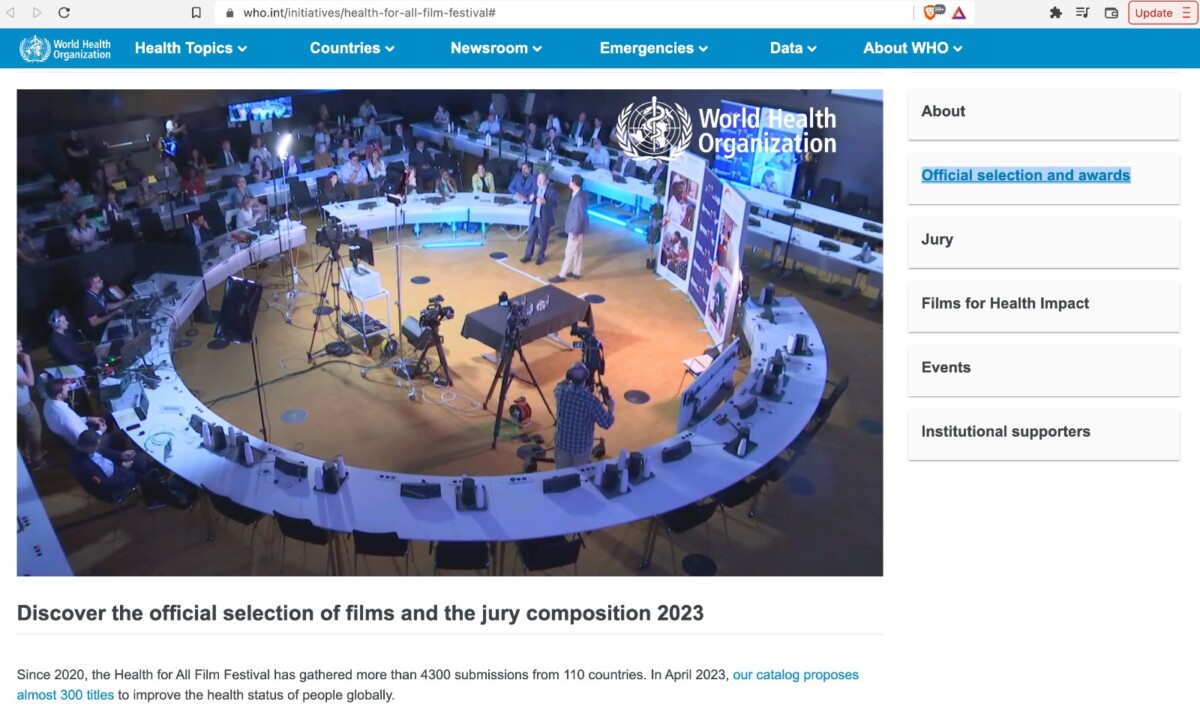
Photo: WHO’s “Health for All” film festival telecasted live from the WHO Headquarter, Geneva, Switzerland.
This film was produced by Pure Earth, a non-governmental organization working for solving environmental pollution. The creative and technical support were provided by the Goopy Bagha Productions Limited. The Cinematographers of the film were Shohag Chowdhury and Bappi Mondal; the Editors were Mahady Hasan Khan Samrat and Sumeet Kumar Roy Shuvo. The Creative Supervisor of the film was Angela Bernhardt, Vice President of Communications, Pure Earth.
While receiving the award, the director of the film, Arifur Rahman, a Filmmaker and Producer, Goopy Bagha Productions Limited said, “I tried to capture the mother and son’s emotions. I can see myself in my characters, and the situation of the mother, Shaila due to the modernization and the pollution from the illegal lead acid factories made me very vulnerable. This film helped me to realize the grim reality of lead poisoning in Bangladesh.”
Director of the film, Mitali Das, a Documentary Film Director and Communications Lead for Pure Earth said, “We don’t want any more children like Saim to suffer through lead poisoning. We urge to stop the informal recycling of used lead acid batteries, and invest and take action to identify the sources of lead which is imperative to solve lead pollution.”
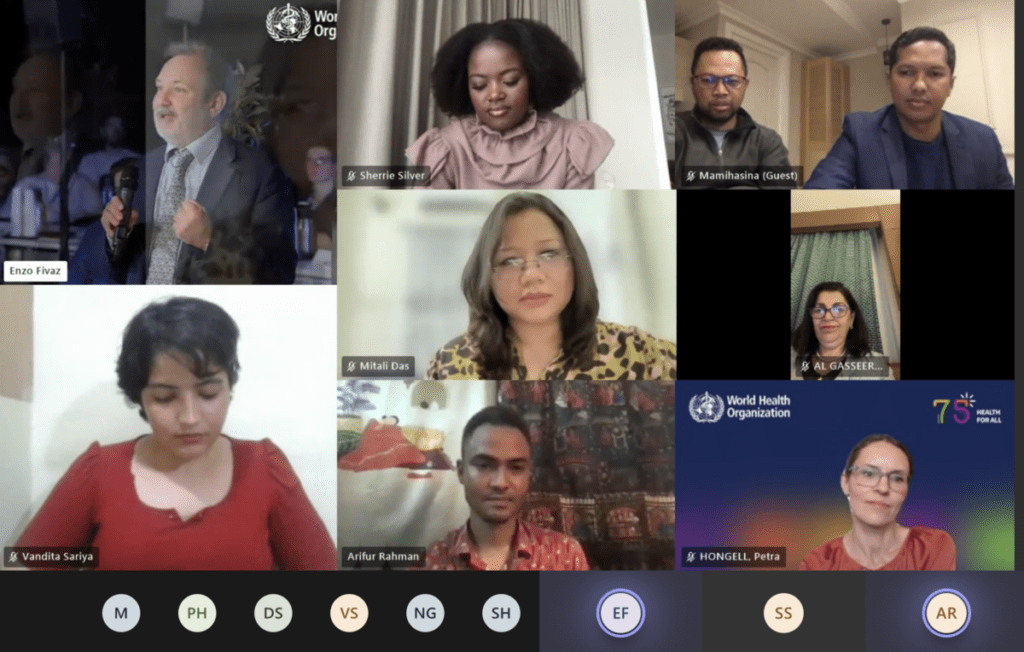
The Creative Supervisor of the film, Angela Bernhardt, Vice President of Communications, Pure Earth said, “I’ve been searching for a way to convey the heartbreaking damage lead poisoning is having on children around the world because it is elusive and invisible. Mitali and Arif, an amazing creative team, found the key to unlocking this urgently needed story. Thank you, WHO for recognizing this effort and putting it on a global stage.”
“The Health for All Film Festival brings a human face to WHO’s scientific work,” said WHO Director-General, Dr Tedros Adhanom Ghebreyesus. “Listening to the voices of people affected by health issues is a powerful way to raise awareness and improve our understanding of people’s experiences and this can help us advance towards health for all.”
The films were judged by a panel of distinguished professionals, artists, and activists, including the renowned actors, Sharon Stone and Alfonso Herrera, dance choreographer, Sherrie Silver, climate activist, Sophia Kianni, and media personality, Adelle Onyango. They were joined by senior United Nations officials and WHO staff.
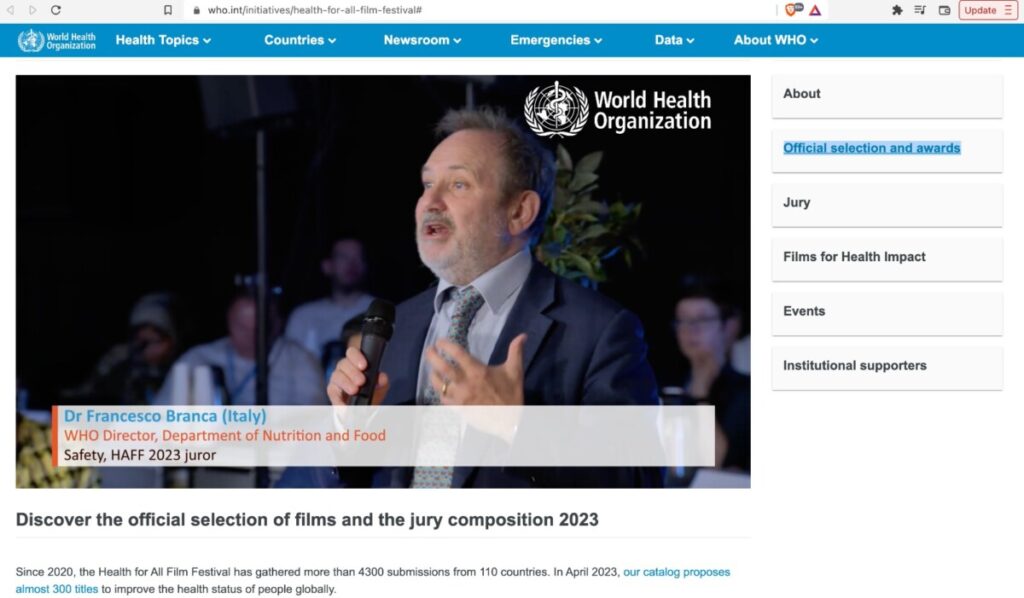
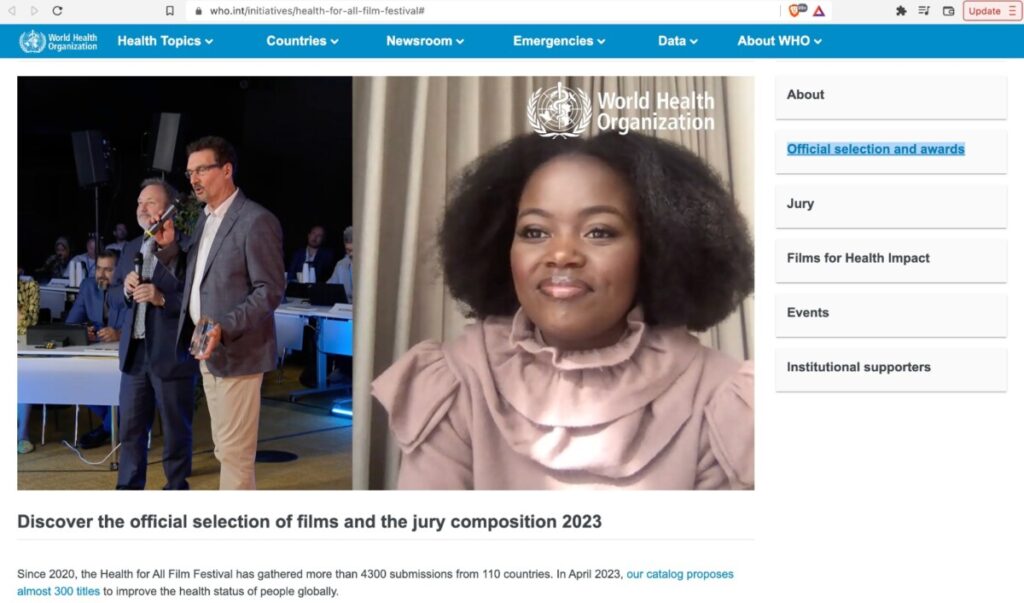
Nearly 800 filmmakers from 106 countries have submitted short films for the 4th edition of the WHO Health for All Film Festival, and some 93 films have been chosen for the shortlist, for review by a jury of international artists and development leaders, before the announcement of the winners. The prizes were given to 11 winning films out of those 93 officially selected films in seven categories. From the official selection, one “GRAND PRIX” is awarded for each of the three main competition categories: Universal Health Coverage, Health emergencies, and Better health and well-being.
About the film:
Bangladesh is the 4th most lead pollution-impacted country in the world. About 36 million children are poisoned by lead in Bangladesh, causing brain damage, decreased intelligence, and behavioral problems. ‘One in 36 million’ is the story of one child, Saim among those 36 million.
The storyline of the film evolves with the narration of Shaila, a portrait of a mother raising a child with brain damage due to lead poisoning from an informal battery recycling operation near her home in Mirzapur, Tangail district, Bangladesh.
This film shows how lead pollution from the common practice of substandard lead-acid battery recycling damages children’s cognitive development, and how government agencies and industry actors can work to prevent future lead exposure, enabling children to reach their full potential.
Directors: Arifur Rahman, Mitali Das
Cinematographers: Shohag Chowdhury, Bappi Mondal
Editors: Mahady Hasan Khan Samrat, Sumeet Kumar Roy Shuvo
Creative Supervisor: Angela Bernhardt
Produced by: Pure Earth Bangladesh
Creative and technical support: Goopy Bagha Productions Limited.
News Coverage
